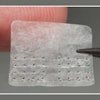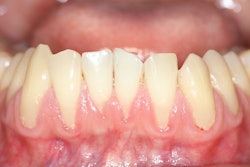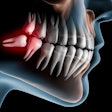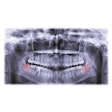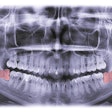Certain factors, including tobacco use and substance abuse, may increase the risk of complications in mandible fracture treatment. This study was published recently in the Journal of Oral and Maxillofacial Surgery.
Furthermore, smoking and illicit drug use may be linked to higher rates of wound infections, incorrect bone alignments or deformities, and refractures, the authors wrote.
“Refrainment from substance use in general was associated with fewer complications,” wrote the authors, led by Dr. Jamie Rose of the University of Alabama at Birmingham Department of Oral and Maxillofacial Surgery. (J Oral and Maxillofac Surg, April 20, 2025).
To identify risk factors for complications in mandible fracture treatment, researchers conducted a retrospective cohort study that included 260 adults treated at the University of Alabama at Birmingham from 2016 to 2023. Predictor variables included tobacco, alcohol, marijuana, and other illicit drug use, along with the number of substances used, they wrote.
Data on fracture sites, injury mechanisms, and documented substance exposure were collected through chart reviews and drug screenings. The primary outcome was the occurrence of major complications -- defined as events requiring hospitalization or further surgery, including bleeding, infection, malunion, nonunion, hardware exposure, wound dehiscence, and osteomyelitis.
Illicit substance use was significantly associated with post-treatment complications (risk ratio [RR] = 3.7, 95% confidence interval [CI]: 1.6 to 8, p = 0.009), while no substance use was linked to fewer complications (p = 0.006). There was no significant association between alcohol or marijuana use and post-treatment complications, they wrote.
The odds of experiencing a major complication were four times higher for tobacco users (95% CI: 1.3 to 17.3, p = 0.03) and 4.6 times higher for illicit substance users (95% CI: 1.5 to 12.7, p = 0.005). Alcohol use and use of multiple substances were not significantly associated with major mandible complications.
Nevertheless, the study had limitations. The participants were treated by a single surgeon, which may have introduced variability in complication rates due to differences in clinical judgment and surgical technique, the authors added.
“This study demonstrates that exposure to tobacco products and illicit substance use is associated with higher incidences of complications in the treatment of mandible fractures,” Rose and colleagues concluded.


